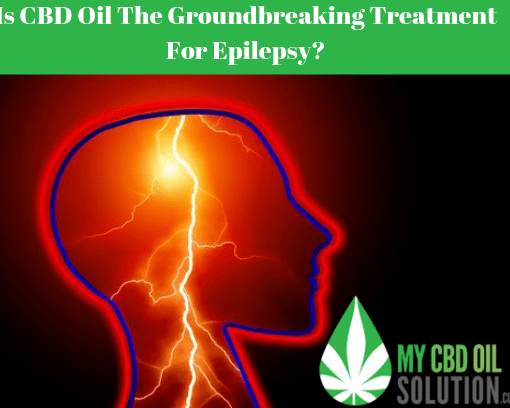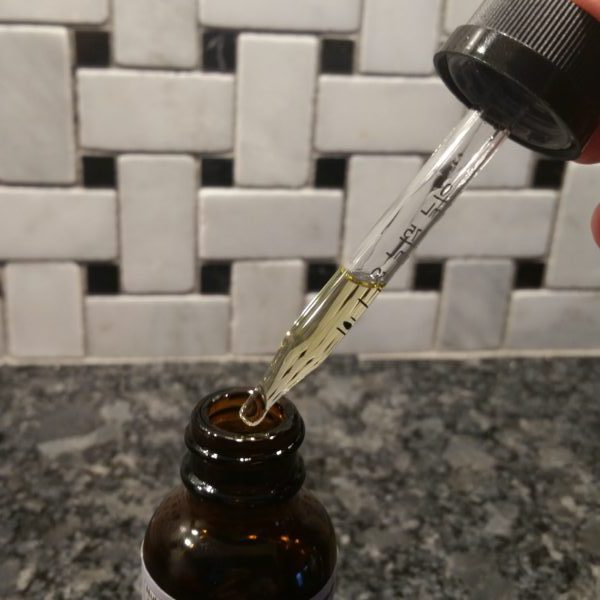[ABTM id=588]
Cancer in some form effects many across the nation. Data from the Cancer.gov states that as many as 439 per 100,000 people annually are diagnosed with some form of cancer each year (new cases). For those that have dealt with cancer, whether personally or with a loved one, you know first hand the difficulties that come with treatment. The diagnosis can come with so much uncertainty and fear. The fear of the unknown, what will happen to me or my loved one. Just processing the information can be overwhelming.
Fortunately over the years there has been treatments developed that have helped to detect, cure or contain certain cancers. In the years past there were some cancers that may have had little treatment options available whereas now can be treated with early detection and perhaps even fully cured. However, some treatments can come with very harsh side effects and hefty price tags.
There is much more promising research coming available to show new effective treatments that could be outside of chemotherapy. Many of you have researched the benefits of CBD Oil and may pause to think can CBD Oil treat cancer? What are the facts? Is there any evidence that supports the ability of CBD Oil to be an effective anti-cancer agent or are these just overzealous claims?
To fully understand how and if there is evidence to support any anti-cancer property claims of CBD Oil lets cover background topics to helps us put it all together. Here are some of the details we will cover.
Background on Cancer
The Common Treatments (Chemotherapy)
Non-chemotherapy Cancer Treatments (Immunotherapy )
CBD Oil and Cancer
Background of Cancer/Understanding Cancer
Mention the word Cancer and fear, anxiety and confusion will likely set in. Cancer is basically the uncontrolled growth of cells in your body. In the not to distant past I remember taking a college level anatomy and physiology class. In the relevant section of the course a discussion about cancer came up.
It was in reference to a related case study in the textbook. The one thing that always stood out to me was how it was explained that in some form there are abnormal cells (cancer cells) in everyone’s body. Your body has natural defense mechanisms in place and basically (when working correctly) the abnormal cells are located and destroyed.
It is when things become uncontrolled when things become problematic. This is a simple explanation but it really simplified things for me whenever I really got heavily involved in understanding how the body operated in conjunction with cancer as well as the treatments involved and their purpose.
There are a variety of causes that are mentioned as causes of cancer. They include lifestyle, environmental and genetic factors. Lifestyle at one time may have sounded a bit taboo but as technology and research has advanced we have been able to pinpoint factors beyond well known lifestyle cancer causing factors such as smoking. The foods you eat can also play a role in cancer.
Last year research was released showing how there is a link with ultra processed foods and cancer. Just having the lack of a nutritional balanced diet can take its toll. Some processed food here and there may not lead to cancer, but if your diet completely consists of processed foods, sugary drinks and lack of fruits, vegetables and fiber then you are exposed to a variety of risk factors. Conditions such as type 2 diabetes and hypertension can often be managed with diet and lifestyle changes.
You certainly cannot control your genetic makeup in the event that cancer can run within your family. However, new tests are becoming available to help you and your medical provider identify risk factors and plan accordingly. Early detection can lead to effectively treating cancers early.
Environmental factors are a bit different in my opinion since sometimes you may not always be aware of potential cancer causing agents in your everyday life. For example Radon Gas can be carcinogenic. Its a colorless and odorless gas that can also be found in homes in certain parts of the country.
There are test kits that can help homeowners be aware of any potential dangers and plan accordingly. Resources are available online and not all areas in the country are subject to Radon gas. In areas effected there would most likely be codes enforced to safe guard against it but sometimes people are just simply unaware.

Another environmental factor that is starting to get more consideration is the water that you drink. This is something that I have become very well versed in over the last few years, but many may assume just because their water comes from a water treatment plant that it is pure, clean, water. That is not the case.
Some treatment facilities are better than others and some pre-treated water quality is better than others but the treatment plants generally do not filter the water but treat for bacteria, and add chlorine (or related chemical for same purpose), remove organic matter etc.
As a general rule, this helps and water treatment really is such a major advancement in modern technology and science, BUT, it does not remove or identify other harmful contaminants that are in the water. The EPA has a set of guidelines for water treatment that they have to meet but it doesn’t include many other chemical agents that are lurking undetected in your water.
For example toxic fluorinated chemicals have been found in water supplies across the country which have been related to cancers and other health problems. This site from West Virginia details information from that region, there could be related chemicals in your water supply. Don’t just expect the local utilities to remove it, have your water tested and get water from a clean supply or check out some purification options so that you can control what you can.
Common Cancer Treatments
Most common cancer treatment involves utilizing chemotherapy. Chemotherapy is the treatment process that is to attack cancer cells. Drugs can be oral and through an IV. There has been some effective treatments utilizing chemotherapy although it does come with a list of long side effects.
Surgery can be performed to remove areas of cancer (tumors). For some cancers this may be sufficient to eliminate it but others there could be treatment such as additional chemotherapy after the surgery. It all can vary based upon the type of cancer that is being treated.
There has been some debate in recent years about chemotherapy, its effectiveness and need in some types of cancers. For those who have been trying to champion the cause that some chemotherapy may no longer be needed in some cases there has been some research that has shown this to be the case. Studies have been able to show that in some cases of breast cancer chemotherapy can be avoided.
In this study it references breast cancer and chemotherapy after surgery but can certainly give optimism for those who may seek to complete treatment without having to go through the extra chemo treatment.
Non-Chemotherapy Cancer Treatments (Immunotherapy)
When most of us hear the word cancer we immediately think of chemotherapy. There are other treatments that have been proven effective and certainly others that are being researched that are showing promise.
The term alternative treatments often gets tossed in when discussing these matters. I use the term myself often when I am discussing options that may not always be the normal brick and mortar treatments (not just for cancer specifically). Unfortunately people throw the term in with quackery, lack of science or research or unproven treatments etc. In my opinion its unfair since things that are legitimate get lost in the mix, so when you hear the terms make sure you read through the context first before passing judgment. Sometimes the semantics can get the reader lost in what information (honest and in good faith) is trying to be passed along.
In my opinion Immunotherapy is the most fascinating treatment option. Immunotherapy is simply utilizing the bodies natural defense system in order to treat a disease.
In cancer for instance it is utilizing the immune system and Killer T-Cells to kill off cancer cells. The human body has a natural defense system in place and it naturally identifies cancer cells in the body and destroys them. The cancer develops when there is abnormal cell growth in which the body is unable to maintain.
Researchers may be able to identify mutations that cause the cancer to occur and have T-Cells located and destroy them. With the identification of the human genome there is a tremendous amount of possibilities available.
Below is a quick video (about 3 minutes) that gives some background on Immunotherapy. Take a few minutes to watch and learn some of the new cutting edge research that can utilize one of the most sophisticated systems there is (the human body).
Does CBD Oil Help Treat Cancer?
Now that we spent some time covering a background on cancer, lets dig in a little on CBD Oil and if it can be effective at treating cancer. One thing we should know by now is that cancer can be very complicated and there are so many different varieties of cancer. Many of the treatment regiments currently available are formulated based upon the type of cancer that is present.
To say that CBD Oil can treat cancer is a extremely overly broad and unfair statement since there are so many types of cancer. Again remember each cancer type and location will require difference types of treatment.
Research continues to unfold and more needs to be performed in the future but there are some things that are currently available that do give some sort of insight. Don’t let that sway any potential optimism because there is some very interesting research that is available that shows some very unique properties of CBD Oil and its role with cancer.
There may not yet be any FDA approved cancer treatment that involves the use of CBD Oil. There is a lot of bureaucracy and regulations that take place in order to get to that point. However, in one of my recent posts on Epilepsy I wrote about research involved with CBD Oil led to an FDA approval of a CBD Oil based medication.
Now here is where things get very interesting!! This might be a good time to take a sip of your beverage in hand or on the table. Rub your hands together or re position yourself in your chair because what I will share below may BLOW YOUR MIND.
Although there is not a tremendous amount of research out there yet, but there are a few things that are VERY interesting. In this study 2016 study researchers found that CBD Oil (cannabidiol) was able to inhibit cell growth and induce cell apoptosis (cell death) of cervical cancer cells.
Another study that would be of interest is from 2013 in which researchers evaluated the effects of CBD Oil on a variety of different cancers. Their conclusions stated that evidence and results are emerging to suggest that CBD Oil is a potent inhibitor of cancer growth. This one was a neat read and had several types of cancer mentioned, be sure to read and check it out if you are seeking certain types of cancers in particular.
Additionally, you may find another post of mine in regards to CBD Oil and Pain interesting. I reference some studies in which researchers found cannabidiol (CBD Oil) to be helpful to reduce cancer related pain.
Wow! Still things are early in the process but to see that researchers have been able to document anti-cancer properties of CBD Oil should fuel optimism. More future studies may be able to focus on specific areas of cancer and give more formal data that can potentially change the lives of countless people.
Summing It All Up
Are you still with me here? I hope so!
We covered a lot of information here and I really hope that it all was helpful. Cancer is an incredibly complex disease that effects so many of us either directly or indirectly. We have learned what cancer is, what types of treatments are out there (the brick and mortar chemotherapy) as well as the new cutting edge treatments such as immunotherapy.
We have also learned that there has been some research with CBD Oil and how it has shown to have some anti-cancer properties.
Will it be become more predominant in new treatments that are being deployed such as immunotherapy?
Researchers are documenting its promise but there is still a lot more research to be performed to help unravel the details. In my opinion the research notes documenting its ability to inhibit cancer growth are very promising and should give us optimism. Ultimately time will tell as more formal research can be performed to evaluate its potential.






